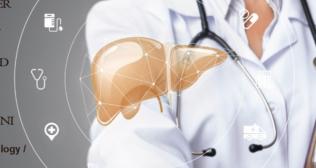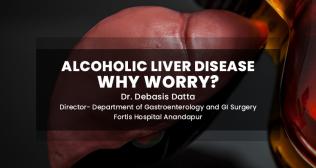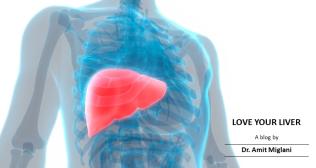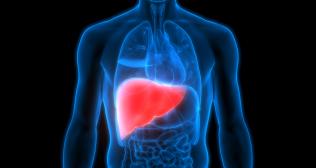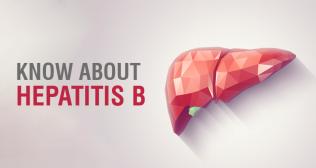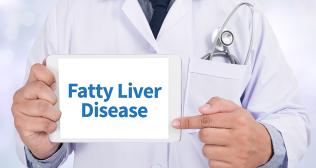
Abdominal Pain
What is abdominal pain?
Stomach ache is a common problem among people of all age groups but the reason might not always be a common one. The pain you feel in your stomach region covering the area between the chest and groin is called abdominal pain. It is located in your belly region and can cover the entire region or generate from a specific part of your abdomen as follows:-
Four types of abdominal pain
Abdominal pain can be categorized into four types based on location: upper, lower, right-sided, and left-sided.
1. Upper Abdominal pain
The pain felt in the upper region of the abdomen, chest, neck and shoulders. While you experience this kind of stomach pain, the common symptoms to look for are bloating, acid reflux, loss of appetite, nausea, heartburn, etc. This can be because of your food habits, lifestyle, consumption of alcohol, etc
2. Lower Abdominal Pain
It is in the lower abdomen comprising various symptoms like painful sex, difficulty in urination, backache, bloating, diarrhea, etc. A person suffering from any of the above takes counter-pain medication specific to the causes of this abdominal pain.
3. Left-Sided Abdominal Pain
This pain is usually because of a serious underlying condition like kidney stones or infection in the left kidney. Infection in the large intestine in that area can also trigger left-sided abdominal pain.
4. Right-Sided Abdominal Pain
Gallstones can cause this kind of pain which spreads to the shoulder blade. Any internal injury or other underlying diseases in that area including cancer can also cause such pain. Appendicitis is another condition that can cause pain in your right belly region. It is not constant, but it slowly moves down over time and becomes severe with symptoms like loss of appetite, shivering, diarrhea, and severe pain, and requires immediate medical attention.
What does abdominal pain feel like?
Abdominal pain because of constipation, gas, acid reflux, etc., may be very discomforting and can also feel like cramps as in the case of menstruation.
Colicky pain is the kind of pain that comes and goes and is sudden and sharp. Mostly gall stones or kidney stones cause this kind of abdominal pain, and the patient can suffer extreme discomfort continuously for hours if it is blocking the urinary path. In some cases, a burning sensation comes along with the pain depending on its cause.
Causes of abdominal pain
There can be various reasons for abdominal pain ranging from infection, gastrointestinal diseases, stones, cancer, or common condition like gas and indigestion. In females, lower abdominal pain can be because of gynecological reasons like periods, fibroids, PCOS, fibroids, excessive bleeding, etc. However, other conditions like urinary tract infection, miscarriage, and intestinal infection can also cause stomach pain and should be diagnosed based on the specific symptoms of the condition and the exact region of the origin of the pain.
In many cases, a heart attack is mistaken for upper abdominal pain. In case of a heart attack, the upper region of the belly, chest, and shoulders ache, along with a burning sensation that is mistaken for acidity, breathlessness, and severe perspiration. This is why it is essential to distinguish between the two, to avoid any critical situation. Contacting a doctor immediately when you suspect a heart attack is highly advised.
Diagnosis for abdominal pain
Usually, the pain is mild and is left to pass its course, like in the case of indigestion, gas, or acidity, and only the diet intake is improved. But for severe occasional or constant pain in any region of the abdomen, tests like a urine test, stool test (in case of bleeding), X-ray, ultrasound (to rule out the possibility of stones), MRI (if there seems a possibility of abnormal tissue growth), endoscopy for gastrointestinal issues, etc, are opted for correct diagnosis of the reasons behind the abdominal pain.
Before going for any of these diagnostic tests, symptoms and the period of the pain are critically analyzed to prescribe further medical tests and treatment.
Treatment of abdominal pain
Abdominal pain is traced back to its symptoms and causes to find the correct treatment option. For simple indigestion and acid reflux, people tend to take antacids and do self-treatment, but in case of severe pain or continuous episodes of discomfort in your belly region, going to the doctor is advised who will then diagnose the problem based on the symptoms and start the treatment process. Such conditions can be avoided by a healthier lifestyle along with good eating habits and regular exercise.
Abdominal pain could also be due to serious problems like cancer, which is why stomach aches should not be suppressed with any self-treatment and a medical expert should be allowed to make the diagnosis and conduct the correct treatment.
Frequently Asked Questions
Q. When to visit a doctor for abdominal pain?
You should visit a doctor’s clinic or emergency centre in the following cases:-
- If abdominal pain in any region lasts longer than a day and is gradually spreading.
- If you experience sudden severe pain in any region, it is a sign to rush to an emergency and not ignore such abdominal pain with painkillers.
- If stomach pain increases and has been troublesome for a while, it is better to get the necessary tests done.
- In females, if the pain is very intense during periods and is getting worse with excessive bleeding, they should get checked for cancer or fibroids to start the treatment immediately.
- If you see blood in urine and stools along with difficulty in passing the urine and defecating, visit a medical expert immediately.
- If you experience frequent vomiting (with or without blood) and loss of appetite, do not ignore it and seek medical expertise.
Q. How long does abdominal pain last?
Depending on the cause of the pain, it can last from 24 hours to days. In acidity, it is only for a few hours before taking antacids. In the case of stones, they can last for a day to two in severe cases. If it is any other condition that needs to be diagnosed there are episodes from time to time and it may or may not last very long but is extremely painful to bear. Bloating and indigestion can be there for 2 days.
In the case of menstruation, cramps last as long as periods last. The pain can be constant if there is any internal injury to any organ in which case it needs proper medical attention and treatment. In case of abnormal growth, the pain can be in form of episodes or constant if it is life-threatening.
It is always advised to carefully note the symptoms and get a proper medical check-up done from time to time to prevent any unfortunate situation. A full body checkup prescribed by your trusted physician can help a long way.
Key Takeaways:
- Abdominal pain is a common problem that can be located in different regions of the belly, including the upper, lower, left, and right sides.
- Different types of abdominal pain can have different symptoms, such as bloating, acid reflux, loss of appetite, and difficulty urinating.
- Abdominal pain can be caused by a variety of conditions, including gastrointestinal diseases, stones, cancer, and common conditions such as gas and indigestion.
- In females, lower abdominal pain can be caused by gynecological issues, but it can also be caused by other conditions such as urinary tract infections, miscarriages, and intestinal infections.
- Abdominal pain can be mistaken for a heart attack, so it is important to distinguish between the two and seek medical attention immediately if a heart attack is suspected.
- The diagnosis of abdominal pain may involve urine tests, stool tests, X-rays, ultrasounds, MRI's, and endoscopies.
- Treatment for abdominal pain will depend on the underlying cause and may include medication, diet changes, and surgery.
Categories
Clear allMeet the doctor

- Gastroenterology and Hepatobiliary Sciences | Gastroenterology | Gastrointestinal Surgery | Gastroenterology and Hepatobiliary Sciences
-
7 Years
-
2000







